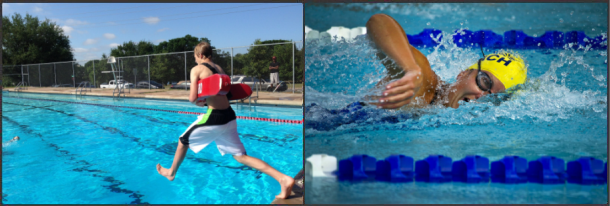Every three years the lifeguard certification should be renewed.

Are you thinking of joining a career as a lifeguard? This blog will let you know everything on the money side of this career. Though it may seem a bit annoying to have to pay the future benefits make it so worth it! Read below to find out what the original training consists off, the annual training and some more interesting facts.
The first lifeguard recorded was in Hawaii in the early 1900s. However, shortly after the Young Men’s Christian Association (YMCA) developed a lifeguarding service. The American Red Cross Lifesaving then took over, they would train up member and then send them to their local area. It has been recorded that there is now 1,646 RNLI lifeguards provided cover on 145 beaches across the UK and Channel Islands.
What does lifeguard training consist off?
Overall, it takes 36 hours to complete your first ever lifeguard training. To receive the qualification, you must but over the age of 16 and able to complete the following (information taken from NPLQ):
- Jump/dive into deep water
- Swim 50 metres in less than 60 seconds
- Swim 100 metres continuously on front and back in deep water
- Tread water for 30 seconds
- Surface dive to the floor of the pool
- Climb out unaided without ladder/steps and where the pool design permits
However, completing these will give you only a basic NPLQ qualification. Throughout the course there is opportunities to complete further qualifications. For example:
- Emergency First Aid at Work
- First Aid at Work Certificate
- Automated External Defibrillation Certificate (AED)
- Management of Anaphylaxis

Why do they need to renew a lifeguard certification?
Lifeguard need to renew their certificate to update themselves on any government changes and to make sure they are refreshed with knowledge. A lifeguard’s job is to keep the people swimming safe, therefore regular update in their training is important. For example, when working with lifeguard services we make sure our lifeguard is specifically trained to meet the needs of your school.
Do they need to pay for the certification?
Depending on which certificate is being renewed it could range from around £100. However, failure to update certificate in time will mean the lifeguard will have to do the course all over again costing approximately a £250 charge. For more information visit the Royal lifeguard saving society UK: https://www.rlss.org.uk/rlss-uk-prices-and-fees-2023
It may seem a lot to update the certificate, however the lifeguards only have to do it every 2 years and the pay begins at around £10 and can quickly go up.
How do they renew a lifeguard certification?
Renewal assessment takes around three to four hours. This includes a full assessment of your lifeguard knowledge and skills by an independent assessor. Before even beginning the assessment, it is mandatory to have an up-to-date copy of ‘The Lifeguard’ manual and have completed 20-hours of Continual Professional Development (CPD) from the date of your previous assessment. The assessment can be presented in two ways either ongoing lifeguard training (which is recommended) or simple one test at the time of renewal (this can be done either in person or online.)
Who is the first lifeguard?
Kahanamoku was the first ever lifeguard. In California on June 13, 1925, he rescued 8 men who were out fishing. He was previously known for his strength on the surfboard. Then using his surfboard, his strength and knowledge of the water to rescue. He then one by one took the captivated men to the surface.



Leave a Reply